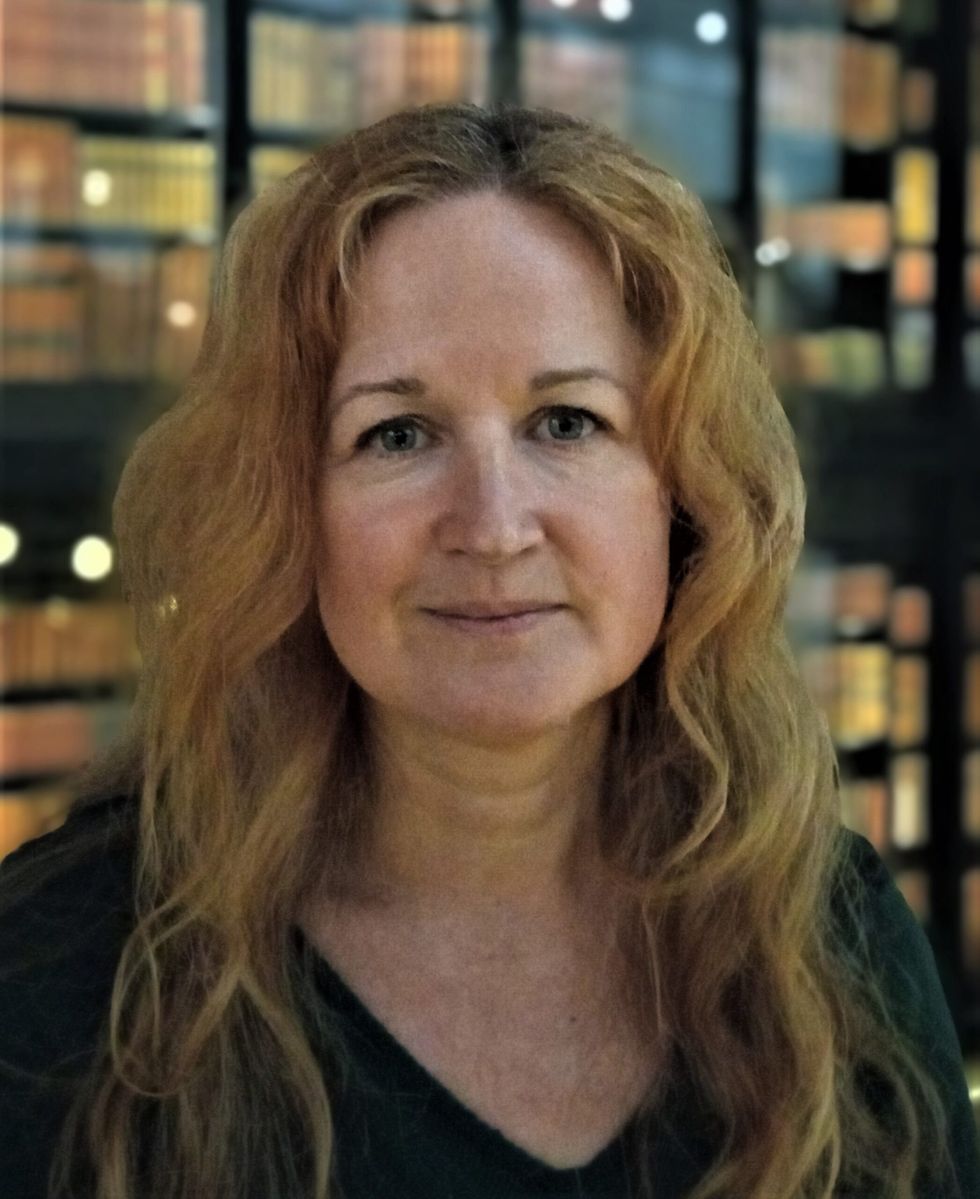LEICESTER UNIVERSITY is conducting a study on the extent of racism in rural England with the aim of changing attitudes and making visits to the countryside less intimidating for non-white people.
It is being led by Neil Chakraborti, director of the Centre for Hate Studies and professor in criminology, who is in charge of The Rural Racism Project: Towards an Inclusive Countryside.
Given Leicester’s diverse population, the university is the ideal place to carry out such research, Chakraborti said.
The two-year research programme has been commissioned by the Leverhulme Trust, a large national grant-making organisation established in 1925, with the instruction that its resources be used to support “scholarships for the purposes of research and education”.
Leicester University said the project involves a cross-disciplinary team from its schools of criminology and museum studies. It added that Chakraborti “has extensively researched hate crime, targeted hostility and violence against minorities.

“He has authored seven books and has more than 50 peer-reviewed publications. His numerous research projects over the past two decades have led to a better understanding of hate crime victims, perpetrators and criminal justice policy.
“Evidence from around the world suggests that hate incidents have escalated since the outbreak of Covid-19, with increasing numbers of people lashing out against particular communities who they believe are to blame for the outbreak, or who are perceived to pose a threat to safety. Much of this hostility has been directed towards visible minorities.”
The university added that Chakraborti is working alongside Dr Amy Clarke, deputy director at the Centre for Hate Studies; Corinne Fowler, professor of colonialism and heritage at the School of Museum Studies as well as postdoctoral researchers and community research partners.
Fowler wrote Green Unpleasant Land: Creative Responses to Rural England’s Colonial Connections. Her new book, The Countryside: Ten Rural Walks Through Britain and Its Hidden History of Empire, is due out in April next year.
She was one of the lead authors of the National Trust’s report on how nearly 100 of its properties had been funded either by the slave trade or money made in India and other colonies.
Fowler and Celia Richardson, from the National Trust, picked up the Eastern Eye ACTA (Arts Culture & Theatre Awards) for community engagement earlier this year.
The trust was given the award for “shining a light on the dark corners of the empire”.
The Leicester study “will also be the first to empirically record and analyse targeted abuse, acknowledging that the process of researching rural racism or engaging in discussions about race and rural spaces, can itself provoke a backlash.
“Researchers in this field regularly receive personal attacks on social media or email; targeted opinion pieces in media; ridicule and abuse within comments sections online; and in some cases, direct threats against personal safety.”
Researchers claim not everything is green and pleasant in rural England.
One of those working on the project is Dr Viji Kuppan, a research associate at the Centre for Hate Studies. He told Eastern Eye: “This work has a personal and political dimension for me.
“Some years ago, I visited the West Yorkshire village of Haworth for the first time. It is a place steeped in literary history, famed for its association with the Bronte sisters, who once lived in the village.
“With its cobbled streets and characterful shops and cafes, it exudes an enchanting olde worlde charm. Nestled among the weathered hills and windswept moorlands of the southern Pennines, this rugged landscape conjures the atmosphere of classic texts, like The Tenant of Wildfell Hall and Wuthering Heights. It may be hard to imagine then, that racism occurs in this most literary and English of places. But it happened to me.

“On the threshold of a public house that my (white female) partner and I planned on eating in, a white man, brandishing a large knife, and barring our entrance, ferociously bawled, ‘You crippled P***. I’d like to kill and burn the lot of you’. Our swift withdrawal from the scene may very well have saved me from being physically injured or worse, but the traces of that shock and fear have stayed with me.
“The next day, on the same cobbled streets, another white man shouted ‘P***’ followed by ‘Go back home’.”
Kuppan said: “This is my home, and these are not isolated incidents as countless other black, brown and Asian people have similar stories to tell.
“However, it is not only spectacular moments of racist hostility that affect us. Racism is structural and is solidified in systems of power such as the media and police. It can also be communicated in very mundane ways – through avoidance, silence, laughter, stares, gestures or mutterings when people of colour enter ordinary rural places such as banks, churches, hairdressers, pubs, retail stores or schools.”
He said: “Despite evidence of prejudice in rural areas, the idea of the ‘rural idyll’ remains a durable trope. For example, speaking in 1993, the former Conservative prime minister John Major romantically opined, ‘Fifty years from now, Britain will still be a country of long shadows on cricket grounds, warm beer, invincible green suburbs [and] dog lovers…’
“We are now 30 years on from his speech, and these beguiling depictions of village and country life remain intact. It is not that such images are false; rather, they are only partial representations. They work to shroud a sometimes more difficult, and sinister reality, for populations of colour, living and visiting the countryside.

“This project also wants to shine a light on the historic, cultural and symbolic representations of racism that are conveniently forgotten. The ways in which colonialism, empire, slavery and indentureship are embedded in our grand stately homes, statues, memorials, family, place and street names located in rural spaces.
“To those who say they want the countryside to remain ‘unsullied’ by these ideas, I would say it is an impossibility because it is already stained by racism.
“Instead, I would argue that it is in everyone’s interests to develop a deeper understanding of how ideas about race have shaped and left permanent reminders on our countryside.
“This is a history that we must have a reckoning with, no matter how unpleasant, and learn and grow from it.”
Kuppan also gave the other side of the story: “I know that the countryside is not just a place of conflict for people of colour, but one of conviviality too. This summer, I walked several stages of the Pennine Way. During this journey I experienced many moments of generosity, humour and warmth from the local people who inhabit and walk in these rural spaces. The disclosure of racism does not mean the denial of hospitality and support.
“This is the complexity of rural life that the research team wants to capture. Yes, we will broaden, deepen and detail the range of rural racisms and processes of exclusion that exist, but we will also highlight the ways in which solidarity, friendship, inclusion and allyship are offered to minority ethnic people in rural environments.”
The university said the Centre for Hate studies, thought to be the only one of its kind in British academia, is “a world-leading research centre whose core mission is to transform responses to hate through its ground-breaking research”.
It said: “We shape policy and practice by enabling professionals across different sectors to engage with diverse communities, to support victims and to tackle hate.”

















 John Dramani Mahama welcomes Modi on his arrival in Accra last Wednesday (2)
John Dramani Mahama welcomes Modi on his arrival in Accra last Wednesday (2) South Africa’s president Cyril Ramaphosa, Brazil’s president Luiz Inacio Lula da Silva, Modi and China’s premier Li Qiang at the Brics summit last Sunday (6)
South Africa’s president Cyril Ramaphosa, Brazil’s president Luiz Inacio Lula da Silva, Modi and China’s premier Li Qiang at the Brics summit last Sunday (6)

